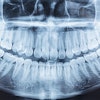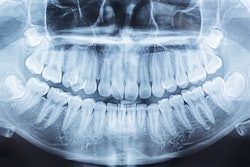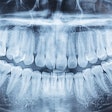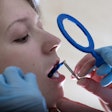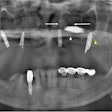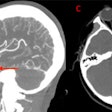
If a minor questions the safety of dental x-rays because she may be pregnant and isn't yet ready to tell her parents, clinicians must consider the potential legalities. The commentary was published on February 13 in the American Journal of Orthodontics and Dentofacial Orthopedics.
Clinicians need to ask the minor uncomfortable yet necessary personal questions, including whether the pregnancy was the result of consensual sex, and then decide how to proceed, the author wrote.
"No ifs, ands, or buts about it; you have to have these conversations and make an appropriate determination of what your responsibilities are and how you will carry them out," wrote the author, Dr. Laurance Jerrold, JD, a private practice orthodontist in Woodbury, NY, and the associate editor of litigation and legislation for the American Journal of Orthodontic and Dentofacial Orthopedics.
What would you do?
The author presented a hypothetical scenario in which a 16-year-old girl and her mother visited an orthodontist for an initial consultation. After explaining that the girl needed imaging before devising a treatment plan together, the mom went to the reception area and the girl was escorted to an area for dental x-rays. In the room, the girl saw a sign that stated, "Important. Please Notify The Doctor Or Staff If You Are or May Be Pregnant."
The girl asks about the risks and explains that she had a positive at-home pregnancy test a few days earlier. She hadn't decided what she planned to do next but didn't want the clinician to tell her mom about it, according to the communication.
In response to this conundrum, the author received 27 responses, which varied. Most of the clinicians were from the U.S., but others were from Israel, Nepal, Canada, Australia, and Japan.
The majority (67%) reported that they would not tell the girl's mother. Of those 18 who took that stand, 11 reported that they would try to convince the girl to tell her mother. Additionally, 10 clinicians reported that they would tell the girl's mother that they couldn't take the x-rays and when asked why, they would tell her to ask her daughter.
Furthermore, four reported that they would not treat her until she gave birth or terminated the pregnancy. Finally, nine of the respondents reported that they believed they were obligated to tell the girl's mother because she was a minor or that it was in the girl's best interest, Jerrold wrote.
Since different countries and different states in the U.S. have different rules and precedents related to healthcare decision-making for minors, clinicians are encouraged to familiarize themselves with the laws in their locations, he wrote.
How to proceed
Clinicians who face this scenario need to ask the patient two critical questions. First, the patient should be asked if the pregnancy is a result of consensual sexual activity or something more illicit. Second, the patient should be asked if the home environment is one in which she can safely discuss the pregnancy. Both questions are important, since clinicians are mandatory reporters of suspected or discovered child abuse or neglect, Jerrold wrote.
Additionally, clinicians should be prepared to break down the facts, deal with each one separately, and then use the resulting observations to devise the best cohesive plan possible. From there, clinicians must have the strength to proceed with their action plans, Jerrold wrote.
"(If not,) you can choose not to think about it and go merrily along jockeying teeth from point A to point B, oblivious to the ethical and legal ramifications concerning a particular patient's situation, or you can relish the opportunity presented and for the briefest of moments to elevate the professionality of your game to the next level," he concluded.

